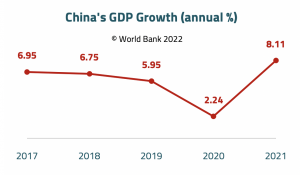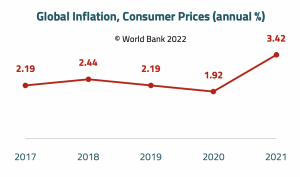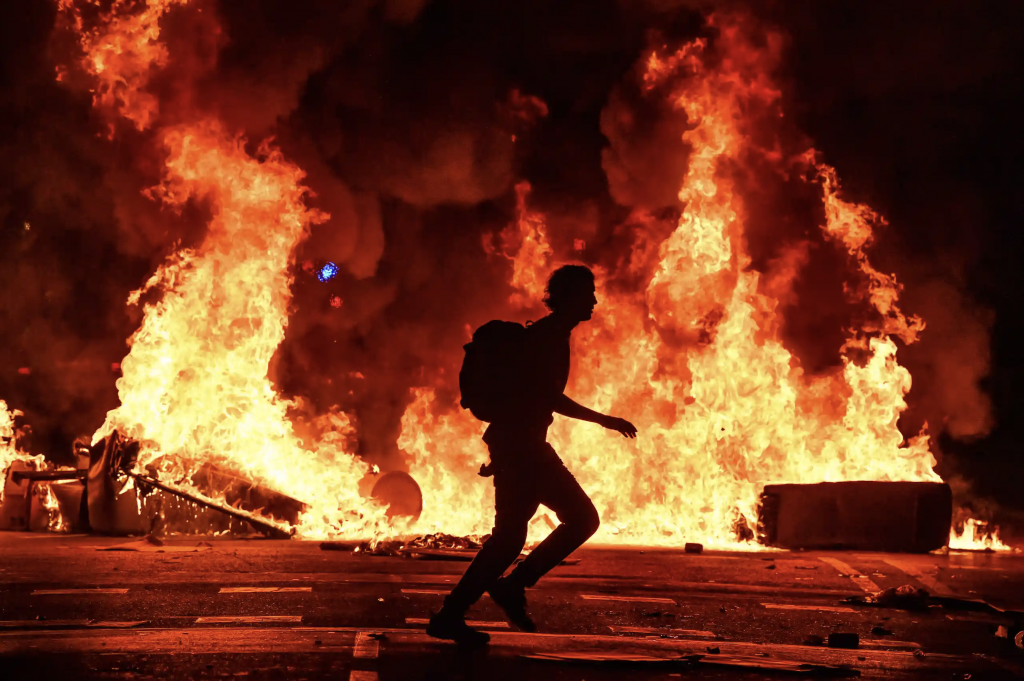Ever since 2020 and the world has been going through a series of events that had severe repercussions on the global economy. Starting from the spread of COVID-19 which took a toll on several economies, slowing down economic growth as worldwide annual GDP growth was -3.27% in 2020, compared to a growth of 2.61% in the previous year, according to the World Bank. Amidst the pandemic, it was evident that many labor-intensive industries found themselves unable to overcome the shortages in labor supply as quarantining and social distancing measures were put in place. This was accompanied by closing borders and restricting movements that limited the trade of key commodities as well as tourism in countries that previously depended on tourists for their main source of income and foreign currency.
More recently, since the Russia-Ukraine war started in February, there have been worldwide economic and geopolitical consequences. Russia and Ukraine’s economic relations with other countries have been halted after decades of being top exporters of key commodities such as oil, gas, corn and wheat. Prior to the war, Russia was the top exporter of wheat, exporting 18% of the global wheat supply, while Ukraine was the 6th top exporter of wheat, accounting for 10% of global wheat exports. Comparably, Russia was responsible for 8.3% of global oil supply and 45% of the gas imports of the European Union.
The disruption in these supply chains has left several countries that were previously dependent on imports from both countries to experience historical increases in inflation affecting key food items such as bread and pasta, as well as shortages and spikes in fuel prices. As countries have just begun to overcome the repercussions of the pandemic, they had to face the unforeseen consequences of the war. Furthermore, the possibility that prices of essential commodities will stay high for longer is increased by the conflict’s continuous escalation. Consequently, this heightens the risk of persistently high inflation and increases the likelihood of stagflation and societal instability in developed and developing nations.
While most countries experienced low or negative economic growth rates, China was able to come out of the stagnation period and surpass expectations. Contrarily, the mismanagement of some governments led to record high inflation rates and shortages in key products. Not only has this affected the living standards and economic growth of several countries, but some populations have also begun to recognize the mismanagement of their leaders, causing a chain of uprisings in countries such as Sri Lanka, Peru, Iran, and Ecuador.
 Namely, in Sri Lanka, protests broke out in March of 2022, only a month after the Russian-Ukraine war. The war detrimentally affected Sri Lanka as the cost of importing oil escalated leading to fuel shortages and daily power outages lasting up to 7 hours at a time. Furthermore, Sri Lanka experienced a sharp decrease in tourism revenue, due to COVID-19, declining from 3.66 Billion USD in 2019 to 1.08 Billion USD in 2020 according to the World Bank. The people of Sri Lanka blamed their political leaders for not being able to compensate for the loss experienced during this period despite President Gotabaya Rajapaksa’s pledging to fulfill Sri Lanka’s obligations. When demonstrators besieged President’s House in Colombo in July 2022, Rajapaksa fled, and Prime Minister Ranil Wickremesinghe declared his willingness to step down. Just over a week later, on July 20, Parliament chose Wickremesinghe to serve as president.
Namely, in Sri Lanka, protests broke out in March of 2022, only a month after the Russian-Ukraine war. The war detrimentally affected Sri Lanka as the cost of importing oil escalated leading to fuel shortages and daily power outages lasting up to 7 hours at a time. Furthermore, Sri Lanka experienced a sharp decrease in tourism revenue, due to COVID-19, declining from 3.66 Billion USD in 2019 to 1.08 Billion USD in 2020 according to the World Bank. The people of Sri Lanka blamed their political leaders for not being able to compensate for the loss experienced during this period despite President Gotabaya Rajapaksa’s pledging to fulfill Sri Lanka’s obligations. When demonstrators besieged President’s House in Colombo in July 2022, Rajapaksa fled, and Prime Minister Ranil Wickremesinghe declared his willingness to step down. Just over a week later, on July 20, Parliament chose Wickremesinghe to serve as president.
Meanwhile, protests also broke out in Peru, as the Peruvian people demanded the resignation of President Pedro Castillo. The country’s economic vulnerability was exposed amidst extreme rises in fuel prices and supply disruptions in agricultural imports such as blueberries, avocados, and grapes. Despite a failed attempt to contain the protests with nationwide curfews, Castillo remained the acting president and is attempting to reverse the effects of the war.
More recently, Ecuador witnessed protestors demanding the removal of president Guillermo Lasso as they suffer from food shortages and soaring fuel prices. The war caused a disturbance in the flow of exports from Ecuador to Europe, which the country heavily relied on for income. In 2021, the value of trade between Russia and Ecuador was USD 1.9 billion, which is 28.8% more than the value in 2020 but forecasted to be less in 2022. There may no longer be a weekly export of USD 2.4 million to Russia, which ranks fourth in importance for Ecuador, and Ukraine, which is Ecuador’s 17th-ranked export market. These protests also came with the failed impeachment of president Lasso. The crisis also demonstrates how Russia’s war is jeopardizing decades of attempts to raise millions out of poverty and endangering some of the vulnerable developing economies.
It is therefore apparent that the Russia-Ukraine war has not only impacted the parties involved, but has also inflicted negative economic impacts on several already vulnerable areas, leading to a chain of protests and political instability. This comes after previous economic repercussions experienced worldwide because of the pandemic, leaving vulnerable countries with no time to recover. However, Senegal was one of the few countries that was able to recover. For instance, the government encourages the cultivation and processing of regional varieties such maize, millet, and cow beans in order to overcome grain and input shortages. To address the food crisis caused by the war, the Senegalese government has just boosted the agricultural budget by USD 15.6 million in an attempt to become more self-sufficient. “Social and economic protection of domestic producers and suppliers needs to be more at the core of the World Bank, the IMF, and other key world players” says Bram Peters, food system advisor at Cordaid.
References:
- FAO. (2022). THE IMPORTANCE OF UKRAINE AND THE RUSSIAN FEDERATION FOR GLOBAL AGRICULTURAL MARKETS AND THE RISKS ASSOCIATED WITH THE WAR IN UKRAINE. Retrieved from https://www.fao.org/3/cb9013en/cb9013en.pdf
- Van Der Ploeg, R. (2022). How will the conflict between Russia and Ukraine impact the agri-food business in Colombia, Ecuador and Peru? • AIPH. Retrieved from https://aiph.org/floraculture/news/how-will-the-conflict-between-russia-and-ukraine-impact-the-agri-food-business-in-colombia-ecuador-and-peru/
- World Bank. (2022). GDP growth (annual %) | Data. Retrieved from https://data.worldbank.org/indicator/NY.GDP.MKTP.KD.ZG?end=2021&start=2017
- World Bank. (2022). Indicators | Data. Retrieved from https://data.worldbank.org/indicator/
- World Bank. (2022). Inflation, consumer prices (annual %) | Data. Retrieved from https://data.worldbank.org/indicator/FP.CPI.TOTL.ZG?end=2021&start=2017
- World Bank. (2022). International tourism, receipts (current US$) – Sri Lanka | Data. Retrieved from https://data.worldbank.org/indicator/ST.INT.RCPT.CD?end=2020&locations=LK&start=2019


